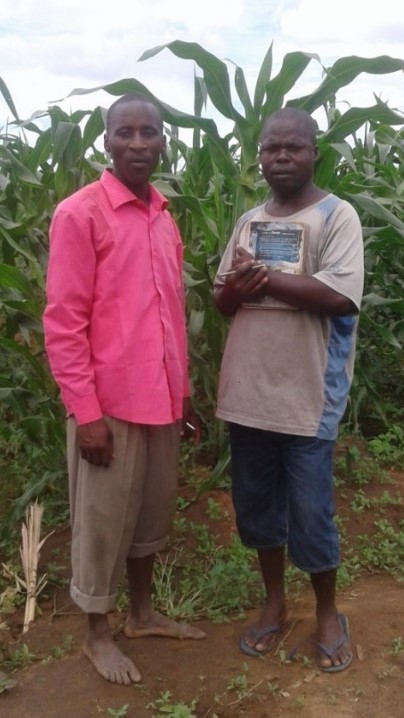
Community Pools Resources to Overcome Drought
Once community members in FRB’s Kenya Magarini program realized they had the resources at hand to overcome food insecurity despite their challenges, including a regional drought, they poured themselves into making positive change happen. The inspiration came from a hands-on Participatory Rural Assessment (PRA) process that helped them analyze their challenges, identify solutions and create a community action plan to guide their development.
“If it hadn’t been for this program and the PRA, we would not be farming as a group and we could not know the benefits of coming together as a community,” says Saidi, a trained community resource person.
He tells how they started with two Farmer Field Schools with demo farms. The first planting season was challenging because of the drought. They only planted a few crops — just enough to establish a kitchen garden for the farmers to learn about crop diversification as a way to reduce their risks of crop failure. But when they also tried planting on their individual farms, the farmers harvested little or nothing due to the drought.
That’s when the field school members decided to join forces to plant a community garden. A member loaned them two acres of land that had adequate water for irrigation so they could produce vegetables for income and family consumption. They received a loan from their community-based savings and loan association to purchase insecticides and, with additional capital from members, they bought seeds.
“Member families had access to nutritious vegetables that they could either buy or receive on credit,” says Chrispine, a farmer in the program. At times members even received free produce to motivate them to work in the garden.
Saidi reports that they made a total of $773 from the sale of the second harvest, and $360 from the third. That harvest was smaller because of some challenges the group faced with the farm owner, but they are now clearing and preparing a different plot for their fourth planting season.
The community is buying PVC pipe and a water pump for irrigation, and bricks to construct a shallow well for easier access to water. They also have money in their account for fuel for the water pump, land preparation and farm inputs.
“The challenges didn’t stop us from doing what we love,” says Saidi. “We are really grateful.”
Kenya Magarini encompasses 10 communities, 1,842 households and 4,836 individuals
Led by World Renew and local partner ADS Pwani
